In 1963, hundreds of thousands of people from across the United States rallied in Washington, D.C. to demand equal rights for African Americans. While women played a key role in organizing the march, they were purposely excluded from the official program, and struggled for recognition for their contributions.
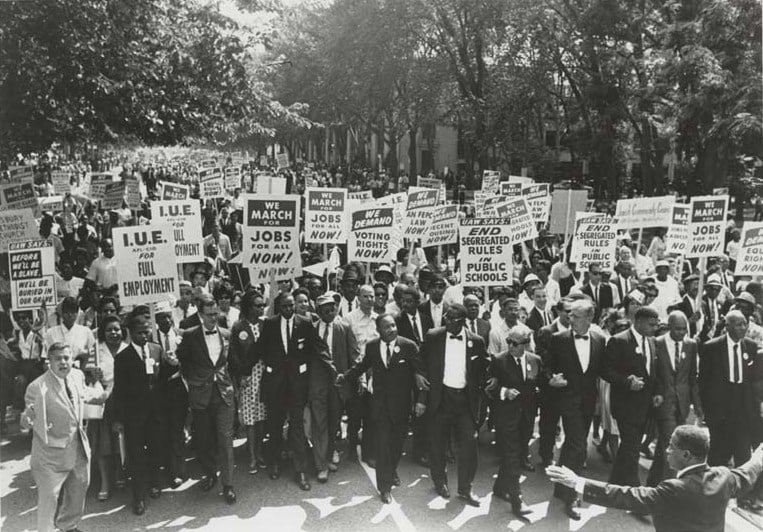
March On Washington for Jobs and Freedom
Organizations such as the NAACP, the Congress of Racial Equality, National Urban League, labor unions, and many more joined together to organize the March on Washington on August 28, 1963.
The leaders of this joint effort, a group of men known as the “Big Six,” included Martin Luther King, Jr. who gave his famous “I Have a Dream” speech during the event. Participants and observers estimated the crowd at about 250,000 people, 75 or 80 percent of whom were black.
One of the main goals of the event was to protest discriminatory hiring practices, and it was successful in helping to pass the Civil Rights Act of 1964 which made such discrimination illegal.
Women Organizers for the 1963 March
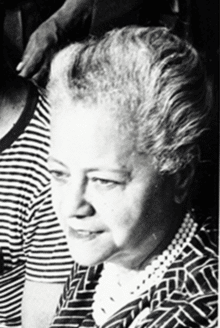
Though no women were invited to join the leading “Big Six” organizers, many women were involved in organizing the march. These women organizers were kept separate during the event and made to march on a separate street from the male leaders and the press.
One of the organizers was writer and educator Anna Arnold Hedgeman, who protested the lack of women on the official program during a planning meeting before the march.
The men claimed they had difficulty finding a single woman speaker who would not cause problems with other women and women’s groups.
However, in response to the criticisms, they did add a tribute to “Negro Women Fighters for Freedom” to the official program to be led by one of the Big Six, Bayard Rustin.
In light of the role of Negro women in the struggle for freedom and especially in light of the extra burden they have carried because of the castration of our Negro men in this culture, it is incredible that no woman should appear as a speaker at the historic March on Washington Meeting at the Lincoln Memorial.
Anna Arnold Hedgeman
Women Speakers in the March on Washington
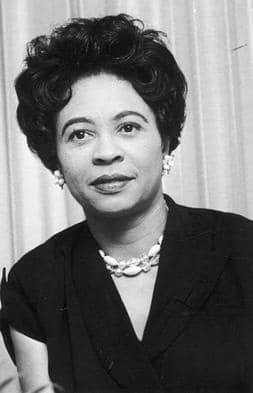
The only woman allowed to speak during the official program was Daisy Bates, a journalist and activist who was President of The Arkansas Conference of the NAACP.
She was allowed to speak less than 200 words during the tribute to women. The tribute also named and acknowledged women such as Rosa Parks, successful student activist Diane Nash, and Gloria Richardson, an activist who fought for years to end segregation in institutions like schools and hospitals.
Gloria Richardson was initially invited to speak for two minutes and was listed on the official program.
However, when she got to the stage, the chair with her name on it had been removed.
She was introduced and only allowed to say “Hello” before her microphone was taken away. She was immediately escorted from the podium and into a cab with Rosa Parks and singer Lena Horne, where they missed Martin Luther King Jr.’s famous speech.
Women Who Sang at the March on Washington
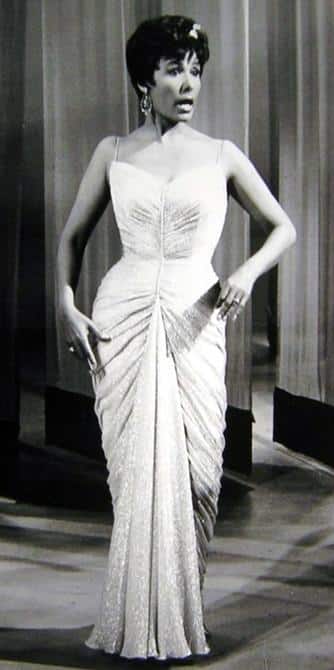
There were several women who sang at the March on Washington. The national anthem was performed by operatic soprano Camilla Williams, who was the first African American to receive a regular contract with a major American opera company.
Marian Anderson, a celebrated and popular contralto who struggled against racism throughout her career, sang “He’s Got the Whole World in His Hands.”
“The Queen of Gospel” Mahalia Jackson performed “I Been ‘Buked and I Been Scorned” just before Martin Luther King, Jr.’s famous speech.
Though his original speech had no mention of his famous dream, Mahalia Jackson kept urging him to “Tell them about the dream!” even when he ignored her at first. Finally he listened to her, setting aside his notes to deliver his famous line.
It’s ironic that one of the biggest and most famous rallies for equal rights in United States history ignored and silenced half the population in many ways. Though so many women participated in the March on Washington and helped to organize it, they were kept off the stage and out of the spotlight, and have struggled to this day to be recognized for the many roles they played.
Next, see Women Who Sued For Freedom From Slavery
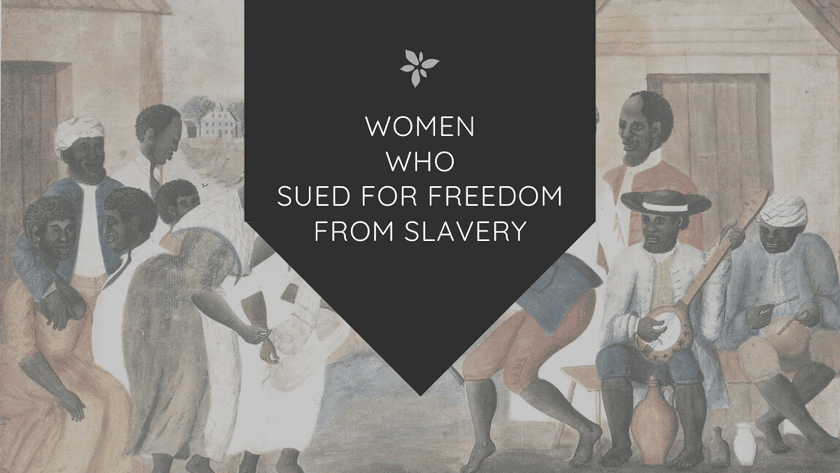
Keri is a blogger and digital marketing professional who founded Amazing Women In History in 2011.

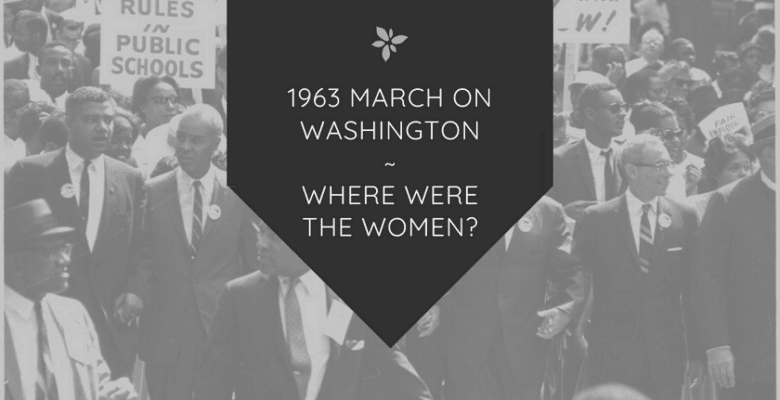
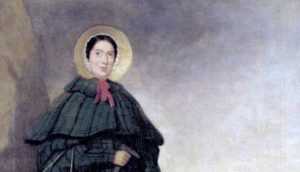
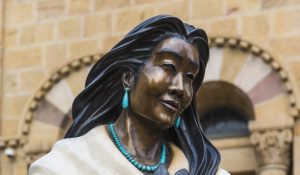
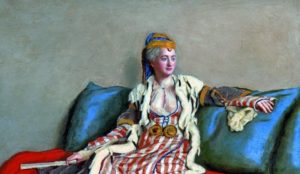

Leave a Reply